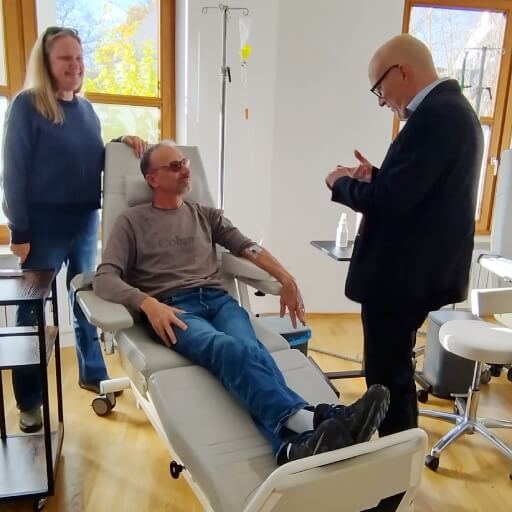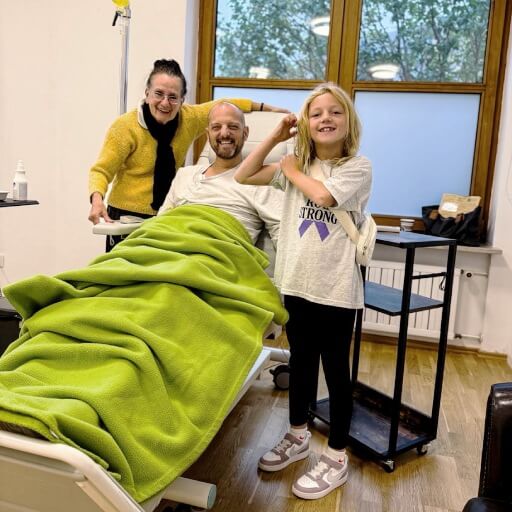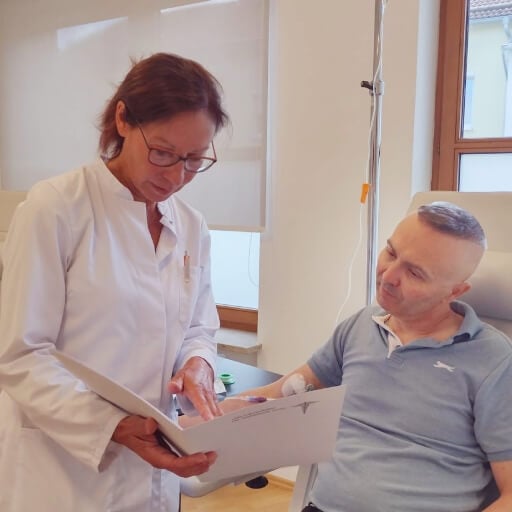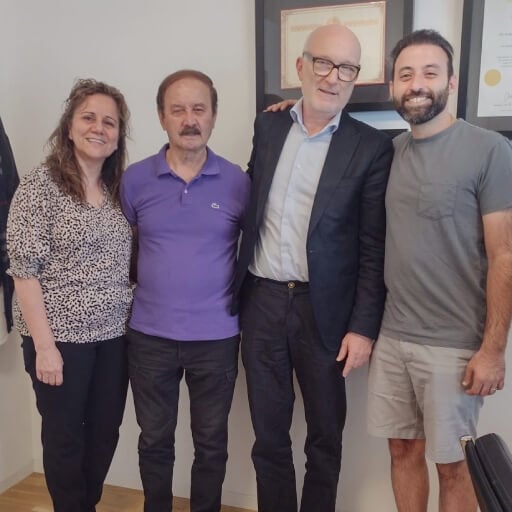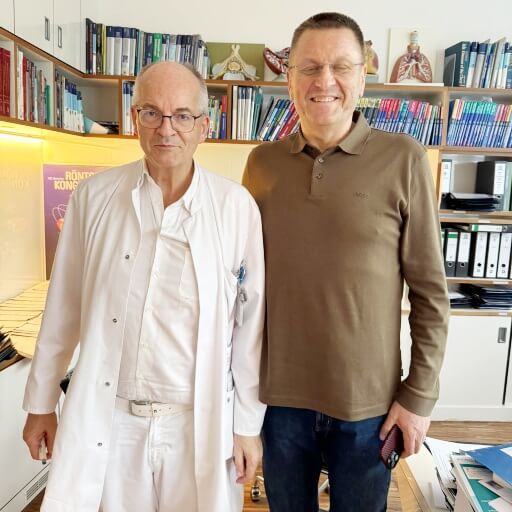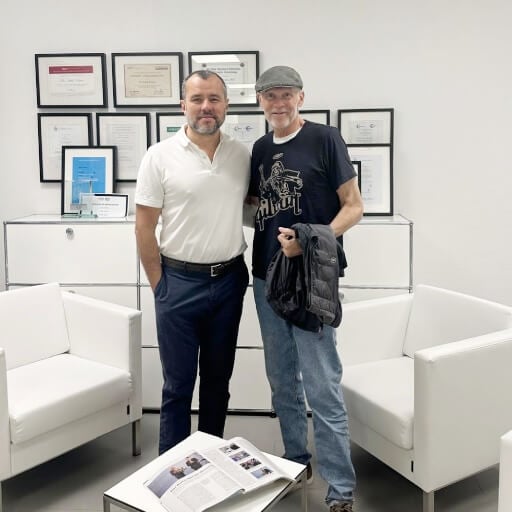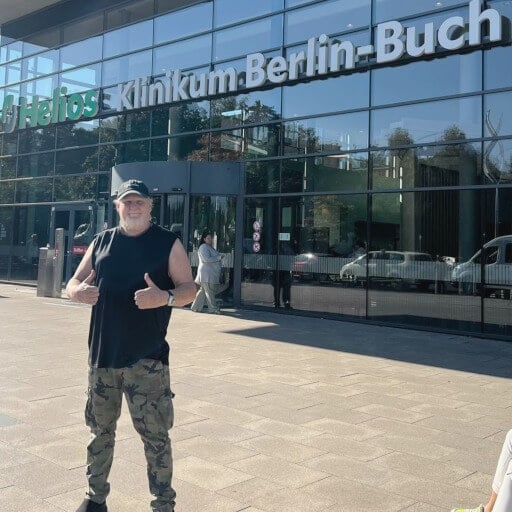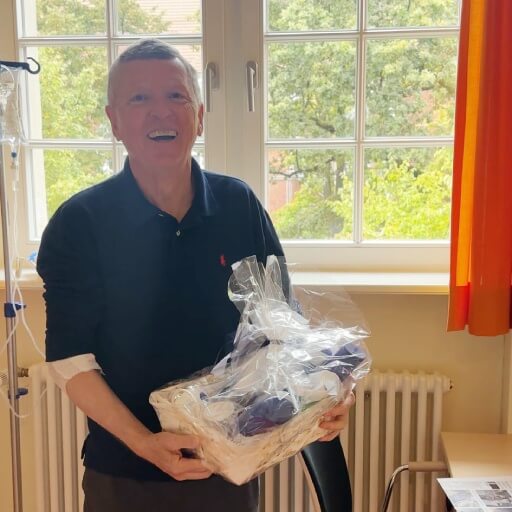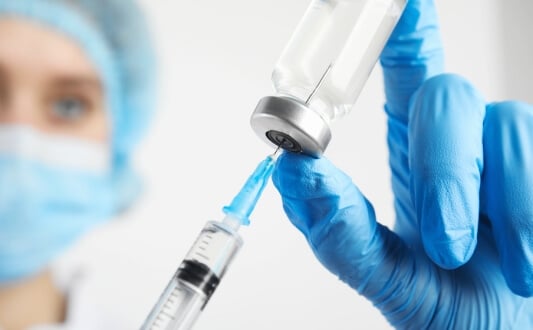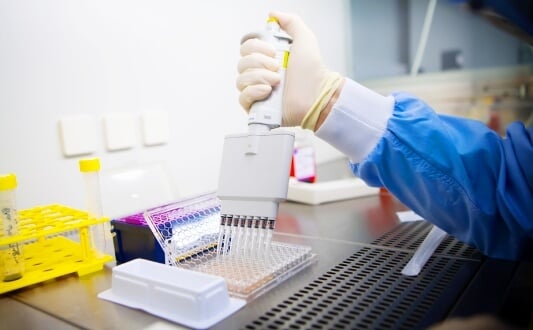In Germany, prostate cancer is treated in large multidisciplinary university hospitals, as well as specialized centers of PCa treatment and radiation therapy. With over 50 specialized centers achieving 5-year survival rates above 90% for localized disease, Germany offers advanced therapeutic options. The availability of robotic surgical systems, HIFU equipment, devices for three-dimensional conformal radiation therapy, drugs for androgen blockade, and symptomatic therapy allows specialists to choose exactly the right therapeutic regimen that will be most effective for a particular patient. Modern techniques like irreversible electroporation (IRE) and cryotherapy have expanded treatment options, offering targeted approaches with fewer side effects while maintaining effective cancer control. Immunotherapy and dendritic cell vaccines are novel approaches that have proven their efficacy in patients with advanced cancer.
Schedule prostate cancer treatment
Therapy goals in prostate cancer
The treatment program in Germany is developed for each person individually, considering their age, stage of the disease, concomitant diseases, and general health. Typically, therapeutic interventions involving various medical resources have the following objectives:
- Complete removal of the tumor or restriction of its growth
- Prevention of tumor invasion into neighboring organs (urethra, bladder, intestines) and lymph nodes
- Prevention of metastasis throughout the body, including bone metastases
- Removal of distant metastases or limiting their growth
- Preservation of physiological urination, sexual function, etc.
German urologists use criteria such as life expectancy, remission, and life quality to assess the effectiveness of therapy in patients with this diagnosis. Quality of life is assessed using questionnaires developed based on the recommendations of the European Organization for Research and Treatment of Cancer [1].
Treatment tactics is always selected individually, as each patient responds differently to various therapies. Some patients may benefit most from radical surgery, others from radiation therapy, and many from a multimodal approach combining several treatment methods. For example, dendritic cell therapy often complements conventional treatments, enhancing overall outcomes while maintaining quality of life, a priority in German cancer care centers.
Treatment of localized prostate cancer
According to the international classification of oncological diseases TNM, localized prostate tumors correspond to stages T1 and T2. This means that the growth is inside the prostate and does not penetrate its capsule. At this stage, the patient can be completely cured. To this end, doctors most often use radical prostatectomy (RP) to treat prostate cancer (PC).
Radical prostatectomy in prostate cancer
Radical prostatectomy is the complete removal of the prostate gland with its capsule and surrounding connective tissue [2]. The prostate can be removed transurethrally, laparoscopically, or with the da Vinci surgical system. In some cases, an open removal can be performed. Open surgery is more traumatic than endoscopic surgery, but provides the surgeon with better access to the tumor.
Today, prostatectomy using the da Vinci surgical system is considered the gold standard. This preserves the nerves and blood vessels of the penis and minimizes the risk of postoperative erectile dysfunction and urinary incontinence. Prostatectomy with the da Vinci surgical system is a good option for many patients with localized prostate cancer and with good expected long-term survival. Possible limitations in treating prostate cancer using the da Vinci surgical system are previous pelvic surgery and morbid obesity.
High-intensity focused ultrasound (HIFU) ablation in prostate cancer
Another method of removing the prostate is high-intensity focused ultrasound (HIFU) ablation [3]. Using focused ultrasound, a local increase in temperature destroys the gland. The prostate tissue is coagulated and destroyed, while the surrounding healthy tissue remains intact.
The HIFU technique can also be used to treat local recurrence of prostate carcinoma after radical treatment. If relapse occurs after the initial HIFU ablation, a second procedure and surgery for prostate cancer, or radiation therapy may be performed.
Other options for minimally invasive treatment of early-stage prostate cancer include the VTP TOOKAD® [4].
Brachytherapy and external beam radiation therapy in prostate cancer
Radiation therapy (RT) is mainly given to men with contraindications for surgery for prostate cancer. This includes local radiation therapy – brachytherapy (for example, implantation of radioactive gold seeds) and external beam radiation therapy (EBRT). Brachytherapy for prostate cancer includes high dose rate (HDR) brachytherapy (BR) and low dose rate (LDR) brachytherapy. HDR for prostate cancer involves the temporary placement of radioactive sources inside the prostate gland.
These sources deliver a high dose of radiation for a few minutes and then are removed. LDR in prostate cancer involves the placement of radioactive "seeds" inside the prostate. These "seeds" emit radiation slowly, over several months, and do not need to be removed after the completion of radiation therapy for prostate cancer.
In addition, in elderly patients with severe comorbidities and short life expectancy, active treatment may be replaced by active surveillance. Such tactics for prostate cancer are possible due to the slow progression of localized tumors without clinical manifestations and a threat to life. In this case, the potential risks of surgery or radiation therapy for prostate cancer are excluded.

*Kovács A, Pinkawa M. Interventional therapy in malignant conditions of the prostate. Radiologe. 2019 Dec;59(Suppl 1):28-39
Irreversible electroporation (NanoKnife) in prostate cancer
NanoKnife is an innovative, minimally invasive treatment for localized prostate cancer that uses irreversible electroporation (IRE) technology. During the procedure, 2-6 thin needle-like probes are precisely placed into the prostate using ultrasound guidance. These probes deliver short, low-energy electric pulses that create nanopores in cancer cell membranes, causing selective cell death without damaging surrounding nerves, blood vessels, or healthy tissues.
Key advantages of this new prostate cancer treatment Germany offers:
- Preserves critical structures (nerves, blood vessels)
- Short procedure time (40-60 minutes)
- Minimal hospital stay (typically one night)
- Quick recovery (1-2 weeks to normal activities)
- High potency preservation rates
This precision targeting makes NanoKnife particularly valuable for tumors near critical structures. The procedure takes only 40-60 minutes under general anesthesia and typically requires just one night in the hospital. Most patients can resume normal activities within 1-2 weeks.
Clinical data shows impressive outcomes with relapse rates below 20%. In one study of 34 patients, 33 showed no signs of relapse after six months. Importantly, the complication rate is low (about 15%), with most side effects being temporary, including mild urinary issues that resolve quickly. Studies report potency preservation in nearly all patients and less than 1% risk of serious complications.
Ideal candidates have localized prostate cancer (stages T1c-T2a), prostate-specific antigen (PSA) levels under 15 ng/ml, and Gleason scores of 7 or less.
In the exclusive interview, pioneering specialist Prof. Dr. mult. Michael K. Stehling shares his decade of experience with irreversible electroporation (IRE) for prostate cancer, explaining how this minimally invasive approach has treated over 1,500 patients while preserving urinary continence and sexual function.
Irreversible Electroporation: Prof. Stehling's Pioneering Work in Germany
Cryotherapy (cryoablation) in prostate cancer
Cryotherapy for prostate cancer involves freezing the prostate tissue to destroy cancer cells. During this minimally invasive procedure, thin metal probes (1.47-3.0mm) are inserted through the perineum and into the prostate under ultrasound guidance. These probes circulate extremely cold gas, creating precise ice balls that freeze the tissue to temperatures between -40°C and -100°C, effectively killing cancer cells.
Ideal candidates include men with early-stage, localized prostate cancer (particularly those confined to one part of the prostate), patients who cannot undergo surgery due to comorbidities, or those with recurring cancer after radiation therapy. The procedure typically takes about an hour and requires only a short hospital stay.
Key advantages:
- Minimally invasive with quick recovery
- Effective for radiation-recurrent cancer
- Precise temperature monitoring protects healthy tissue
- Low incontinence rates (1-2%)
Modern cryotherapy uses advanced temperature monitoring to protect surrounding structures like the urethra (which is warmed during the procedure), bladder, and rectum. This precision has significantly reduced side effects compared to earlier techniques. Recovery is quicker than with surgery, though patients typically need a catheter for about 6 days.
Long-term data show biochemical disease-free survival rates of 61-87% depending on cancer grade and prostate-specific antigen (PSA) level. While incontinence rates are low (1-2%), sexual dysfunction remains a significant consideration when choosing this treatment option.

Data of Prof. Dr. med. Attila Kovács
Photodynamic therapy (PDT) in prostate cancer
Photodynamic therapy is an innovative focal treatment for localized prostate cancer that specifically targets cancer cells while preserving healthy tissue [5]. This two-stage procedure begins with the intravenous injection of photosensitizing drugs that accumulate in cancer cells. Hours or days later, thin optical fibers are precisely inserted into the prostate under ultrasound guidance to deliver a specific wavelength of light to the target area.
Key benefits of photodynamic therapy:
- Selectively targets cancer cells
- Preserves healthy surrounding tissue
- Multiple cancer-fighting mechanisms
- Minimizes urinary and sexual side effects
- Tissue-preserving approach
When activated by light, the drugs produce free radicals that destroy cancer cells through multiple mechanisms: direct cell killing, collapse of tumor blood vessels, and stimulation of the immune response against the tumor.
PDT offers significant advantages for patients with small, low-risk prostate cancers who seek alternative prostate cancer treatment in Germany, other than active surveillance, surgery, or radiation. The procedure minimizes side effects that commonly affect quality of life, particularly urinary and sexual function.
Treatment of locally advanced prostate cancer
Locally advanced prostate cancer affects the capsule of the gland (stage T3), affects adjacent organs (stage T4), or metastasizes to regional lymph nodes. At this stage, radiation therapy is preferred over other prostate cancer Germany treatment options [6].
Radiation therapy in prostate cancer
Radiation therapy for prostate cancer at this stage includes 3D conformal radiation therapy. This is a type of external radiation therapy in which the dose of ionizing radiation is determined individually, depending on the location of the tumor and its positional relationship with neighboring organs. Specialized German clinics also offer intensity-modulated radiation therapy (IMRT). This is a type of radiation therapy that additionally considers the shape and volume of the tumor. The choice of the type of radiation therapy primarily depends on the technical capabilities of the medical facility, since not all hospitals have equipment for intensity-modulated or three-dimensional conformal radiation therapy. To further reduce the risk of complications from radiotherapy, German doctors use rectal spacers to create a barrier between the irradiated prostate and neighboring healthy organs.
Hormone therapy in prostate cancer
The combination of radiation therapy with the prescription of hormonal drugs increases the effectiveness of therapeutic measures. In hormone therapy, doctors use drugs that block the growth and spread of carcinoma under the influence of testosterone. Such drugs include analogs of the luteinizing-releasing hormone, steroids, "pure" antiandrogens, and estrogens.
In men with castration-resistant (i.e., antiandrogen-resistant) forms of prostate carcinoma, chemotherapy for prostate cancer may be used. Typically, chemotherapy drugs are given every three weeks in combination with daily glucocorticoids.
Prostatectomy at this stage of the disease is ineffective since radical surgical intervention to remove the entire mass of the tumor and metastases is most often impossible. However, many studies have demonstrated the benefits of prostatectomy combined with complete androgen blockade using modern hormonal drugs.
Surgery to treat problems passing urine (TURP) in prostate cancer
Transurethral resection of the prostate (TURP) is a palliative surgical procedure for locally advanced prostate cancer patients experiencing urinary obstruction. Unlike curative treatments, TURP specifically addresses quality-of-life issues by removing portions of the prostate that block urine flow.
During this minimally invasive Germany procedure for prostate cancer, the surgeon inserts a resectoscope through the urethra without external incisions. Using electric current or laser technology, the surgeon removes prostate tissue obstructing the urethra. The procedure typically takes 45-60 minutes under general or spinal anesthesia.
Key benefits of the transurethral resection of the prostate:
- Immediate relief of urinary symptoms
- No external incisions
- Short hospital stay (1-3 days)
- Quick improvement in urinary flow
Patients may experience temporary blood in the urine and require catheterization for several days. While not a cancer treatment itself, TURP significantly improves the quality of life for men with prostate cancer who struggle with urination, allowing them to tolerate other cancer treatments better and maintain daily activities.
Treatment of metastatic prostate cancer
Metastatic prostate cancer can correspond to any T-stage in the presence of metastases in the lymph nodes of the pelvis or distant organs. Prostate tumors most often metastasize to the bones, lungs, and liver. In the case of metastatic tumors, the most effective treatment methods are high-tech radionuclide therapy and androgen blockade.
Bilateral orchiectomy and chemical castration in prostate cancer
Bilateral orchiectomy and chemical castration are used to block the stimulating effect of androgens (testosterone) on the cells of the primary tumor and its metastases. In clinical practice, various mechanisms of androgen blockade are used, from removing the testes (the main source of androgens) to blocking tissue androgen receptors and increasing the level of antiandrogenic substances (estrogens).
Therapeutic radionuclides (Lutetium-177, Actinium-225) in prostate cancer
Radionuclide therapy, that is, Lutetium-177 therapy and Actinium-225 PSMA therapy, is currently the most modern and effective way to help men with metastases in the bones, liver, and lungs [7]. Therapeutic radionuclides (Lu-177 PSMA and Actinium-225 PSMA) recognize prostate cancer cells and selectively accumulate in them, thereby killing cancer cells with radiation.
In this case, normal cells and tissues that do not have characteristic receptors are not exposed to radiation. Therapy with Lutetium-177 and Actinium-225 can only be carried out in a few medical institutions in Europe. They require complex technological production of radionuclide preparations and strict radiation protection measures.
Although Lu-177 is recommended specifically for patients with metastatic cancer, it has a relatively wide range of indications. The introduction of Lu-177 PSMA shows good results in tumors that are resistant to hormonal drugs and chemotherapy. Lu-177 can be used even in cases where the primary tumor cannot be surgically removed. Sometimes Lu-177 PSMA is considered a life-saving therapy when no other treatment options are effective.
In addition to the treatment with Lutetium-177, PSMA therapy with Actinium-225 and radionuclide treatment with Radium-223 are also carried out in men with bone metastases of prostate cancer. The separate article is devoted to the comparison of the effectiveness of various radionuclides for the treatment of metastatic prostate cancer.
Hear directly from Prof. Dr. med. Stefan Dresel, one of Germany's pioneers in Lutetium-177 PSMA therapy, as he explains how this targeted treatment works and why it has become a crucial option for men with advanced prostate cancer.
"Precision Medicine in Prostate Cancer": Interview with German Nuclear Medicine Pioneer Prof. Stefan Dresel
Immunotherapy in prostate cancer
Men with metastatic hormone-resistant tumors can also receive immunotherapy. This treatment works even when chemotherapy, radiotherapy, and hormone therapy are not effective anymore. In Germany, 4 types of immunotherapy are used: dendritic cell vaccines, monoclonal antibody preparations, immune response checkpoint inhibitors (CTLA-4, PD-1/PD-L1), and CAR T-cell therapy.
Symptomatic therapy in prostate cancer
Symptomatic therapy is aimed at improving the quality of life. This includes painkillers, drugs to correct anemia, restore weight lost due to illness, etc. For men diagnosed with a metastatic tumor, bisphosphonates are additionally prescribed. Bisphosphonates stop the destruction of bone tissue, reduce pain, and, to some extent, have an antitumor effect (reduce the blood supply to metastases). German clinics offer modern drugs prescribed every four weeks and have an extremely low risk of side effects.
| Characteristic | Standard Treatment | Innovative Methods |
|---|---|---|
| 2-Year Survival Rate | ~25% for advanced cancer | ~60% for advanced cancer |
| Response Rate | Less than 10% | 45-65% |
| Treatment Duration | Several cycles over months | Up to 4 sessions |
| Side Effects | Severe (nausea, fatigue, hair loss, immunosuppression, skin irritation) | Mild (localized discomfort) |
*Booking Health data. Data may vary based on case complexity.
Start prostate cancer treatment
Cost of the prostate cancer treatment abroad
In most cases, prostate cancer therapy includes several treatment options. These can be operations in combination with radiation therapy, Lu-177 treatment with symptomatic therapy, etc. The development of the most effective treatment regimen is an undeniable advantage of undergoing prostate cancer therapy in German hospitals. The prices for the most demanded advanced treatments and various methods of radiation therapy are as follows.
| Therapy Type | Prostate cancer treatment options |
|---|---|
| Da Vinci prostatectomy for prostate cancer treatment | 24,740 EUR |
| Treatment of prostate cancer with high-intensity focused ultrasound (HIFU) | 27,400 EUR |
| Treating prostate cancer with transurethral electroresection | 14,800 EUR |
| Lu-177 PSMA therapy for the treatment of prostate cancer | 39,050 EUR |
| Treating prostate cancer with conventional radiation therapy | 22,270 EUR |
| Interstitial radiation therapy (brachytherapy) for prostate cancer treatment | 22,510 EUR |
| Intensity-modulated radiation therapy (IMRT) for the treatment of prostate cancer | 27,300 EUR |
In addition to the method of treating prostate cancer, the cost of a medical program for treating prostate cancer depends on the level of the hospital (it must offer all the necessary technical and medical resources) and the position of the attending physician (for example, treatment by the head of the department is more expensive).
The list of the leading specialized clinics for prostate cancer treatment in Germany includes:
- University Hospital of Ludwig Maximilian University of Munich, Department of Adult and Pediatric Urology headed by Prof. Dr. med. Christian G. Stief
- Helios Hospital Berlin-Buch, Department of Urology headed by Prof. Dr. med. Mark Schrader
- HELIOS Klinik Krefeld, Department of Adult and Pediatric Urology headed by Prof. Dr. med. Martin Friedrich
- University Hospital Ulm, Department of Adult and Pediatric Urology headed by Prof. Dr. med. Christian Bolenz
- Urology Hospital Munich-Planegg Munich, Department of Adult and Pediatric Urology headed by Prof. Dr. med. Martin Kriegmair and Dr. med. Ralph Oberneder
- University Hospital Frankfurt-am-Main, Department of Urology headed by Prof. Dr. med. Felix Kyoung-Hwan Chun
The approximate costs of modern medical services in leading specialized German hospitals are as follows:
Treatment of prostate cancer with da Vinci prostatectomy
| Hospital | Prices |
|---|---|
| University Hospital of Ludwig Maximilian University of Munich | 26,216 EUR |
| Marien Hospital Marl | 25,800 EUR |
| University Hospital Ulm | 24,870 EUR |
| Urology Hospital Munich-Planegg Munich | 23,695 EUR |
| University Hospital Frankfurt am Main | 23,920 EUR |
Interstitial radiation therapy (brachytherapy) for prostate cancer treatment
| Hospital | Prices |
|---|---|
| University Hospital of Ludwig Maximilian University of Munich | 21,290 EUR |
| Marien Hospital Marl | 16,948 EUR |
| University Hospital Ulm | 20,300 EUR |
| Urology Hospital Munich-Planegg Munich | 19,760 EUR |
| University Hospital Frankfurt am Main | 19,720 EUR |
Lu-177 treatment
| Hospital | Prices |
|---|---|
| University Hospital of Ludwig Maximilian University of Munich | 29,760 EUR |
| University Hospital Düsseldorf | 27,480 EUR |
| University Hospital Erlangen | 27,265 EUR |
| University Hospital Bonn | 27,647 EUR |
Prostate cancer treatment in Germany with Booking Health
International patients planning to undergo the diagnosis and treatment of prostate cancer in Germany should take into account the peculiarities of receiving medical services abroad. Choosing a specialized clinic from several dozen leading medical institutions specializing in urological oncology is also important.
It will be much easier for such patients to assign responsibility for both medical and organizational issues to Booking Health.
Booking Health employees can help patients and their relatives with the following issues:
- Selection of a suitable clinic based on the annual qualification profile
- Direct communication with your doctor
- Preliminary preparation of the medical program without repeating previous examinations, and answers to questions about the program
- Providing a favorable cost of treatment in Germany, including a favorable cost of Lutetium treatment, without overpricing and additional rates for foreign patients (savings up to 50%)
- Booking an appointment with a doctor on the desired date
- Monitoring a medical program at all its stages
- Assistance in purchasing and shipping medicines
- Contact with the clinic after the end of the program
- Account control and return of unspent funds
- Organization of additional examinations
- TOP-class service: hotel booking, air tickets, transfer
Please leave a request on the Booking Health website, and on the same day, a medical consultant or patient leader will contact you and answer all your questions. You will find comprehensive information on prostate cancer treatments on the Booking Health website.
Fighting Cancer Together: Treatment Journeys with Booking Health
Common Questions About Prostate Cancer Treatment: What Patients Want to Know
Send request for treatmentGermany offers comprehensive treatment options, including radical prostatectomy with da Vinci system, external beam radiation therapy (3D conformal, IMRT), HIFU, irreversible electroporation (NanoKnife), cryotherapy, hormone therapy, and radionuclide therapy (Lu-177, Actinium-225).
German clinics offer advanced proton therapy as part of their comprehensive radiation options. With specialized centers achieving 5-year survival rates above 90% for localized disease, Germany provides state-of-the-art treatments.
German clinics utilize advanced diagnostic technologies, including PSMA-PET scan, to accurately detect and stage prostate cancer. These cutting-edge diagnostic methods support the multidisciplinary treatment approach in specialized German centers, enabling precise tumor characterization for personalized therapy selection.
Costs vary by procedure: da Vinci surgery (€19,420-29,195), HIFU (€22,600), brachytherapy (€13,600-17,400), conventional radiation therapy (€22,480), IMRT (€28,300). Costs depend on hospital level and physician experience.
Booking Health facilitates second opinions from German specialists by selecting appropriate clinics based on qualification profiles, arranging direct communication with doctors, and organizing preliminary preparation of medical programs without repeating previous examinations.
Germany achieves 5-year survival rates above 90% for localized disease. For advanced cancer, innovative methods show 60% 2-year survival compared to 25% with standard treatments. NanoKnife shows relapse rates below 20%, with 33 of 34 patients showing no relapse after six months.
Booking Health assists with clinic selection, direct doctor communication, favorable treatment costs without foreign patient surcharges (saving up to 50%), appointment booking, medication assistance, account control, and premium services like hotel and travel arrangements.
Yes, immunotherapy is available for hormone-resistant metastatic prostate cancer when chemotherapy and other treatments fail. German clinics offer four types: dendritic cell vaccines, monoclonal antibodies, immune checkpoint inhibitors, and CAR T-cell therapy.
Prostate cancer treatment in Germany is known for its advanced medical technologies, experienced specialists, and high treatment success rates. Patients benefit from innovative therapies, personalized care, and modern facilities, making Germany a top destination for oncology care.
The best hospitals for prostate cancer in Germany include LMU University Hospital (Munich), Asklepios Hospital Barmbek (Hamburg), and Helios Hospital Berlin-Buch. These institutions offer comprehensive diagnostics, robotic surgery, and access to the latest therapies.
The prostate cancer surgery cost in Germany ranges from €12,600 to €28,200, depending on the complexity of the case and whether robotic-assisted techniques like Da Vinci are used.
The latest prostate cancer treatments in Germany include Lutetium-177 PSMA therapy, irreversible electroporation (NanoKnife), proton therapy, HIFU (High-Intensity Focused Ultrasound), and personalized immunotherapy approaches such as dendritic cell therapy.
Yes, non-surgical prostate cancer treatment in Germany can be highly effective, especially for early-stage or low-risk patients. Options include radiation therapy (IMRT, brachytherapy), hormone therapy, active surveillance, and focal therapies like HIFU or photodynamic therapy.
Yes, international patients with prostate cancer in Germany are welcome and can access world-class care without a local referral. Coordinators assist with visas, medical documentation, travel arrangements, and language support.
From prostate cancer diagnosis to treatment in Germany, the process can move quickly. Once medical records are submitted and a treatment plan is agreed upon, patients can typically begin therapy within 1-2 weeks, depending on availability and complexity.
These are frequent urination (especially at night), weak or interrupted urine flow, blood in urine or semen. Sometimes, none at all are present in early stages.
Approximately €12,700-€28,900 per treatment cycle – it depends on the healthcare facility and additional medical services required. Booking Health will help you understand the costs of treatment exactly for your case.
Depending on the medical case and the hospital chosen, this can be from €25,000 to €45,000.
In general, standard treatment costs €80,000-€150,000 for the full course. Innovative methods – €25,000-€60,000. See the exact prices on the Booking Health website.
The reported 2-year survival rate is about 25% with standard methods and up to 60% with innovative treatments. German doctors actively use innovative methods in complex treatment schemes.
Unfortunately, for standard therapy it is below 10%. With innovative approaches we see numbers around 45-65%.
Standard therapy lasts several months and includes multiple cycles. Innovative methods are usually completed in up to four sessions.
Standard therapy causes severe side effects such as nausea, fatigue, or hair loss. Innovative methods lead to mild, short-term reactions.
In Germany advanced therapies for prostate cancer include: immunotherapy, dendritic cell-based approaches, targeted therapy and interventional radiology procedures. These methods are tailored individually (aiming to improve survival and quality of life).
Leading German cancer centers offer multidisciplinary programs for prostate cancer. Their teams specialize in personalized treatment plans (to maximize effectiveness and minimize side effects).
Germany is recognized for high-quality prostate cancer care (combining innovative methods and comprehensive support). Here patients benefit from access to advanced therapies, that are integrated with conventional treatments for optimal outcomes.
Choose treatment abroad, and you will get the best results surely!
Authors:
This article was edited by medical experts, board-certified doctors Dr. Nadezhda Ivanisova, and Dr. Bohdan Mykhalniuk. For the treatment of the conditions referred to in the article, you must consult a doctor; the information in the article is not intended for self-medication!
Our editorial policy, which details our commitment to accuracy and transparency, is available here. Click this link to review our policies.
Sources:
[1] European Organisation for Research and Treatment of Cancer. https://www.eortc.org/
[2] American Cancer Society. Surgery for Prostate Cancer. https://www.cancer.org/cancer/types/prostate-cancer/treating/surgery.html
[3] Prostate Cancer UK. High-intensity focused ultrasound (HIFU). https://prostatecanceruk.org/prostate-information-and-support/treatments/hifu
[4] PubMed. TOOKAD(®) Soluble vascular-targeted photodynamic (VTP) therapy: determination of optimal treatment conditions and assessment of effects in patients with localised prostate cancer. https://pubmed.ncbi.nlm.nih.gov/24028764/
[5] PubMed Central. Shining a Light on Prostate Cancer: Photodynamic Therapy and Combination Approaches. https://pmc.ncbi.nlm.nih.gov/articles/PMC10302598/
[6] PubMed Central. The role of radiotherapy in localised and locally advanced prostate cancer. https://pmc.ncbi.nlm.nih.gov/articles/PMC6488693/
[7] PubMed Central. A Review of 177Lutetium-PSMA and 225Actinium-PSMA as Emerging Theranostic Agents in Prostate Cancer. https://pmc.ncbi.nlm.nih.gov/articles/PMC9584169/
Read:
Article menu:
- Therapy goals in prostate cancer
- Treatment of localized prostate cancer
- Treatment of locally advanced prostate cancer
- Treatment of metastatic prostate cancer
- Cost of the prostate cancer treatment abroad
- Prostate cancer treatment in Germany with Booking Health
- Common Questions About Prostate Cancer Treatment: What Patients Want to Know
Don't know where to start?
Contact Booking Health
